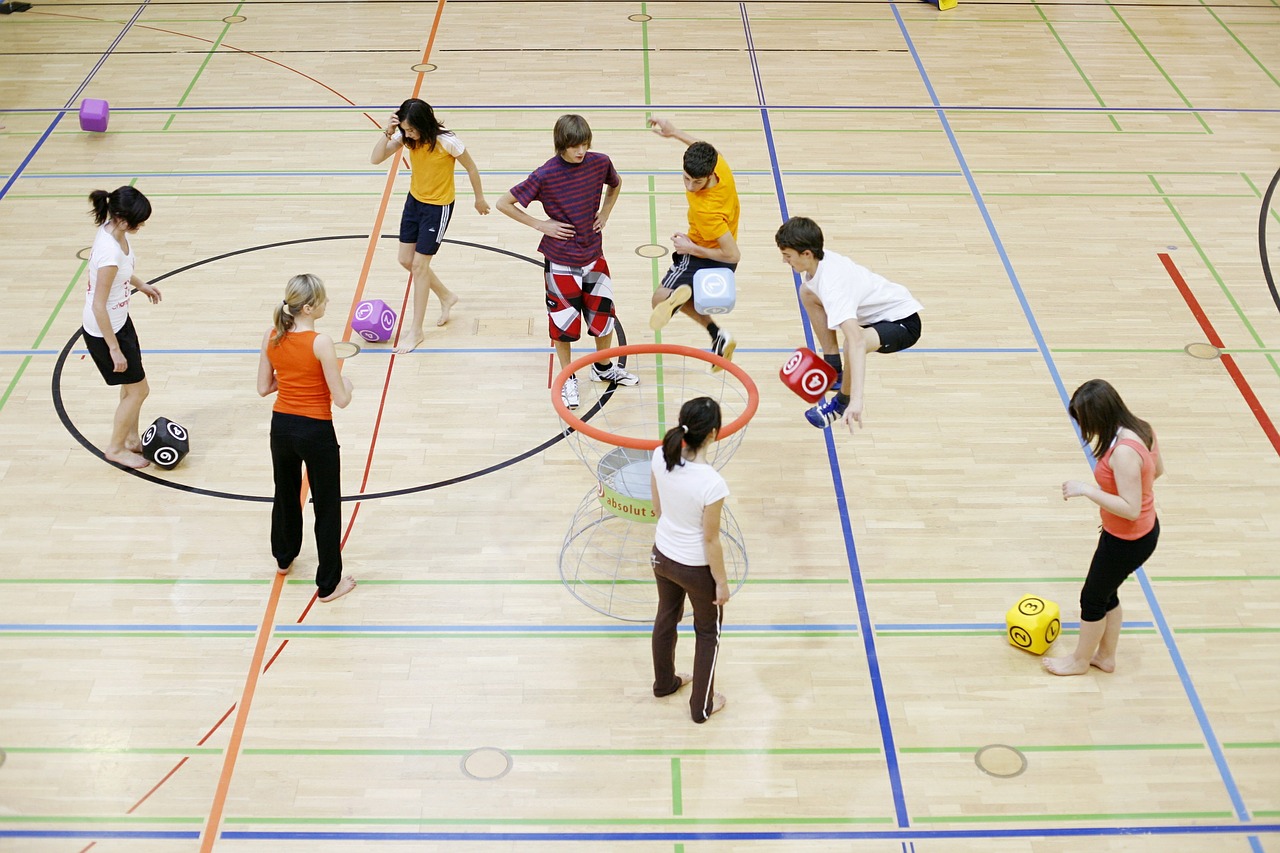Language is the road map of a culture. It tells you where its people come from and where they are going. — Rita Mae Brown
In 2020, Statista Research Department estimated there were nearly 2 million French expatriates living abroad. Of these, over 40,000 have made Australia their home, with many supporting themselves by teaching French as a foreign language. French-speaking expats who are already giving French classes in Australia, maybe as a freelance or independent tutor, may go on to instruct on French culture and language in schools.
Many public and private schools, both primary and high school offer their pupils French courses, some even offer full immersion into French language. Colleges and universities also offer French courses and even diplomas and certifications. If you want to learn how to speak French but you're not enrolled in school, you might take private lessons or courses offered through the community.
Find good French classes Sydney on Superprof.
Are you a French expat or a fluent French speaker living in Australia? Would you like to help Aussies learn your native tongue? Superprof has put together this guide to help you get started. You'll learn what a teacher needs to do and the qualifications they must have. And then, we'll cover where you might find yourself holding French classes and what your learners might be like.

Teaching French as a Foreign Language
In Australia, the majority of French teachers work with pupils whose first language is not French. So unless you work in a bilingual school or instruct learners not yet at the intermediate level, most of your instruction will be in English. There is a considerable difference between teaching French as a foreign language and giving French lessons to native French speakers. It's the same difference between learning English at school as a native speaker and learning English as an additional language.
The biggest difference is that native learning generally starts from birth and second, or foreign, language learning starts after the native tongue is acquired. Some children have the advantage of growing up in bilingual homes, too. Each parent speaks their native dialect so the child picks up on both languages simultaneously. Or it could be a relative living in the household who speaks an alternate tongue.
We'll take for granted that you grew up in a single-language home and picked up your second tongue, maybe Indonesian, German or even Latin, much later. Those courses likely included activities in the four domains: reading, writing, speaking and listening. You probably had vocabulary lists to study and grammar worksheets to work on. Did you also take part in culture-learning activities?
If so, rest assured that language instruction hasn't changed terribly much. Admittedly, teachers have new educational tools to work with and a whole host of interactive resources. And lessons are more grounded in realistic communication skills; they're less about rote learning vocabulary lists.
If you are a native French speaker, educating others about your native tongue requires adaptation of your pedagogy. You won't be able to educate foreign language students using the same methodology you'd use for native learners. Also, French teachers often need to adapt lessons to suit their students' needs. Your learners may be in the same class but not all at the same level. Particularly in primary school, you may discover you have native French speakers among your foreign language learners.
You probably worked hard at university to get your French degree, if that was the route you took to gain your language abilities. And you may have lived in France to get a great understanding of French society, too. But if you don't have teaching qualifications, you won't be able to get a job as a French instructor in Australia in the formal education sector. However, there is nothing to stop you from applying for a job as a French teacher overseas in the private sector, where a Bachelor of Education is not necessarily required.

Teaching French in Schools and Universities
To teach the Francophone language in a formal setting, the first required qualification is obvious. Unless you're a native speaker, you have to have studied the language in-depth and long-term, preferably through secondary school and at university. You don't have to have lived in France or any other French-speaking country but that experience would make your CV stand out.
As a university student, you may study French as its own degree plan, as part of a modern languages degree or as your major in another discipline, such as arts or business. Later, when you decide you want to pursue teaching, you can enrol in a postgraduate educator's course. This can be done through face-to-face classes, fully online or in a hybrid course format.
Earning your degree in French Studies should prove your language abilities well enough to not need to sit the Diplôme D'Étude en Langue Française DELF-DALF exams, particularly if you plan to limit yourself to primary school instruction. On the other hand, why wouldn't you take that extra step? You may get tired of working with small children. At some point in your career, you may find yourself craving conversations about La Fontaine, Molière and Hugo.
Assuring your language skills is one aspect of teaching French; the other is learning how to teach languages. Unlike other academic subjects - Maths, science and the like, language learning is not progressive. You don't first have to learn the pronouns and then the nouns or the adverbs and then the verbs.
We must also consider language study's four discrete parts: reading, writing, listening and speaking. Your pupils may prefer the first two components but baulk at oral exercises and struggle with listening. To learn how to balance the four elements so your learners feel empowered, we recommend that you undertake a couple of units or classes in foreign languages methodology. Also, when you do your practical placements, arrange to be placed with a French teacher at the school level of your choice.

Teaching French in Schools
Whether you give lessons in primary or secondary school, you'll have about the same responsibilities and the same latitude when leading French instruction. You'll work from a set curriculum to which you may add resources if the school approves of them. You'll have to pace your lessons so that you keep up with the school's expectations and exam schedules. And you must mark your pupils' progress objectively.
You'll likely have to submit your lesson plans for approval, particularly when you're newly hired. Your supervisor will critique your initiatives and perhaps make recommendations. If you design any course activities, be sure to include them in your lesson plans. Your supervisor will want to make sure they meet the courses' objectives.
As your lessons progress, be sure to differentiate activities so that you cater to students at every level. You'll have to practise and reinforce grammar rules throughout the course so try to find as many engaging ways as possible to do so. And as you share cultural knowledge, encourage your learners to use natural communication in French.
Teaching French in Universities
By the time learners reach this level of French education, they have language mechanics, pronunciation and vocabulary pretty well in hand. So, depending on the French course you deliver, you'll either build on existing knowledge or make use of them through literary or cultural exploration. Giving French classes to university-level learners gives you far more latitude to design your courses and draw on the resources you prefer. All with department head approval, of course.
University instruction is far more teacher-led than lower-grade schools. Typically, professors lecture while students take notes. In my French class Melbourne, my groups get their oral practice in via video assignments. For instance, they may have to narrate a short clip or record themselves giving a presentation.

Teaching French in Private Groups
As you've probably gathered by now, not all French teachers are based in primary or secondary school settings, or at university. When it comes to teaching French in Australia, there is a range of options open to any teacher with the required qualifications. These include:
- helping pupils in younger years with their French, at university or senior secondary school
- educating people who might be moving to a French-speaking country
- offering lessons to private companies or community groups
- working in language centres or cultural institutions.
All of these opportunities are also available if you work overseas. And you could also work as a language assistant or co-teacher in a primary school or secondary school. If your finances are an issue, you'll want to have a clear understanding of pay rates in different countries, as well as contract conditions. Always check the paperwork before you commit.
If you don't have an education degree and getting a job overseas is not an option, don't worry. You can still share your knowledge about France, its language and mores through private lessons. You might apply for a position at a community college or at a language institute.
If you are a French national and you have the required educational qualifications, the Alliance française has branches in all states of Australia; they may be happy to see your job application.
Have you tried applying at tutoring centres? Kumon and Sylvan are international examples of such; there might be a few Australian brands, especially in the bigger cities. You'll most likely have to have at least a Bachelor's degree to work at any of them but your degree doesn't have to be in French studies.
To lead French lessons Brisbane at such a centre, you may only need to provide your DELF-DALF certifications.
If we've learned nothing else from the pandemic, we know for sure that teaching online is doable. Tutors of all types, including French tutors have been giving lessons online for nearly 10 years. But it took a virus to show us that online instruction can be just as effective as classroom learning.
So you might set yourself in business as an independent French tutor online or in person, like so many Superprof French tutors have done.
So how about becoming an independent French tutor? You could tutor children who are learning French in school or adults who are keen to learn the language. You would have your choice of venues to hold your lessons in.
You may go to your pupils' homes or set up a classroom area at your place and welcome students there. And nothing says you can't have French lessons in a coffee shop while you and your learner enjoy your favourite brews.

Students in Private French Classes
What type of students can you find in private group French classes? The answer to this question depends on the country you're in and the level of education you are dealing with. If, for example, you land a job overseas in a language school, your students may range from children as young as two to 99-year-young learners.
In a formal setting like a school, you'll likely meet many students who are only in class because they have to be. This can be tough to deal with, particularly for a passionate, enthusiastic educator. On the other hand, community classes and evening courses tend to only attract people who want to be there. They are eager to learn.
For the French instructor who likes to keep things lively, private group lessons are made to order. Such a mentor might specialise in Conversational French for holidaymakers set to explore all of the lands where French is spoken.
To help this group perfect their pronunciation, you might play tongue twister games or sing French songs together. You won't have to follow a set curriculum so you can use the resources you think best suit your students and the lessons.
On the other hand, if you take a position with Alliance française, your lessons will have to be more formal. Also, the Alliance has a set curriculum for every teacher to follow. Students that attend these classes often go on to sit the DELF-DALF exams so the extent of your role-play games will likely be limited to exam mock-ups.
On the whole, the educational setting you want is a personal choice. You may love working with teenagers because little kids might scare you. Adults might not be outgoing enough - or too outgoing, for your pedagogy.
Your best bet is to find your niche and hone your skills there; you can always move on when you're ready for a change of pace.
What if you think you need to boost your oral or reading abilities before you can face a classroom? There's nothing shameful about admitting you need revision work. And Superprof is the place to find experienced and understanding tutors who are ready to help you wherever needed.
You may choose your preferred method of lesson delivery with your Superprof; private in-person tutorials, online lessons or group tutoring. Whichever you choose, take the time to discuss with your tutor what your goals are and what is required from the lessons.
The best tutors tailor their in-person and online sessions to the needs of their students. Online tutorials are cheaper because there is no travel time or costs to factor in.
But both in-person and online courses offer the best value because, although they are less expensive than a group lesson where the cost is shared between everyone, you don't have to share your tuition time with other students.
With Superprof, you also have that peace of mind because most Superprof tutors offer their first session of tutoring for free. This allows you to ascertain whether you and your tutor could work together effectively. And now, there's just one question left to ask. Did this article help you decide to pursue a formal teaching position or a career as a private French tutor?
Summarise with AI:
















